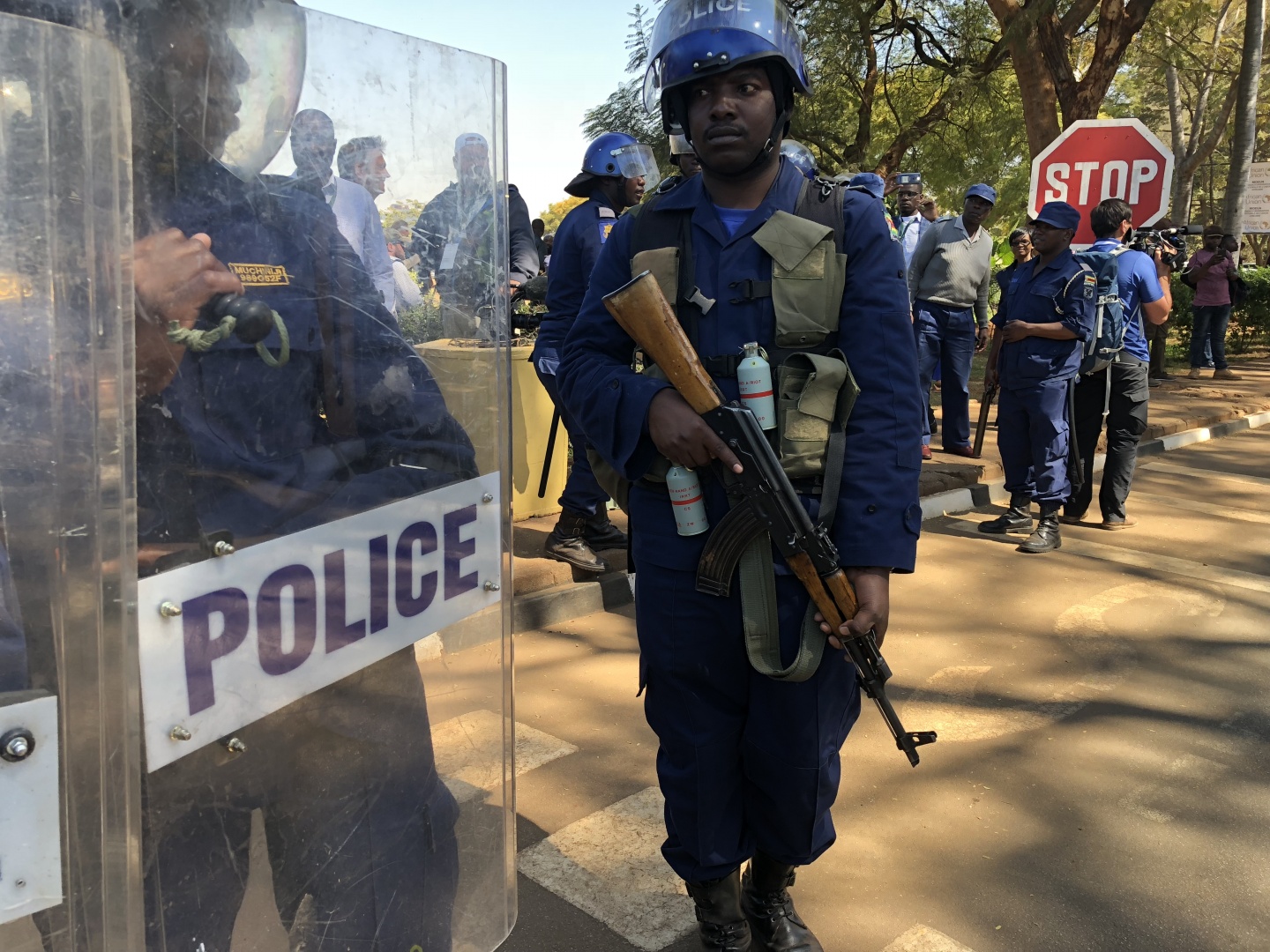9 August, 2018With the Zimbabwe National Army’s killing of six people, including workers and street traders, in post-election violence Zimbabwean unions are doubtful of the prospects for a democratic transition.
Zimbabweans went to the polls with the hope of turning things around from decades-long political and economic crises. Reasonably so, because unemployment is over 90 per cent, factories have closed, and wage theft is common.
Cash shortages, limited access to clean water, power outages and a crumbling infrastructure have led to mass migration of millions while the majority eke a living in the informal sector. Only six percent of the working population has formal jobs.
With the military-assisted removal of Robert Mugabe, the country’s ruler for 38 years, so much was expected in the 30 July elections for local government, parliament and the president. The ruling Zimbabwe African National Union Patriotic Front (ZANU PF) party won over two thirds of the parliamentary seats with the MDC Alliance (MDCA), a smaller party and an independent candidate getting the remainder.
However, the delays in announcing the presidential ballot led to protests on 1 August in Harare by the opposition which alleged that the results were being “stolen”. To disperse the protestors who marched to the vote counting centre, the police came first, but when the army appeared on the scene — shooting indiscriminately in crowded streets with live bullets — six people were killed, and dozens injured. During the mayhem shots were fired at the offices of the Zimbabwe Congress of Trade Unions.
Sylvia Maphosa was on her way home from work when she was shot in the back and killed in Harare when soldiers fired live bullets to disperse protesters demanding the release of presidential poll results.
A member of IndustriALL affiliate, the Zimbabwe Energy Workers Union (ZEWU), Maphosa worked at the Zimbabwe National Water Authority.
In its condolence message ZEWU said:
Maphosa was a staunch member of the union who joined ZEWU in 2003 and remained loyal to the organization until her untimely death which shocked everyone who knew her as a humble character.
The union therefore calls for a thorough investigation into the matter to ensure that those responsible for committing this heinous act are brought to book urgently and face the full wrath of the law.
Human Rights Watch has reported beatings and intimidation of opposition supporters by “security forces and unidentified gunmen” in the townships of Harare where most workers live.
The army’s heavy-handedness has been condemned by the UN which is calling for “maximum restraint.” Further, the EU, Canada, Switzerland and the United States of America deplored “the eruption of violence, and occurrence of serious human rights violations.”
Wiseman Garira, chairperson of the Zimbabwe IndustriALL Council representing eight affiliates in the garment and textile, engineering, chemical and plastics, energy, leather and shoe, metal and mining sectors denounced the way in which the Zimbabwe Electoral Commission managed the polls. For instance, the commission failed to supply the voters roll to opposition parties on time.
Even the results are “questionable and took longer than is necessary” Garira added.
Paule France Ndessomin, IndustriALL regional secretary for Sub Saharan Africa added:
The right to protest is guaranteed in Zimbabwe’s Constitution. In the event of violent protests, it’s the responsibility of the police to maintain law and order, but not the army. Therefore, the use of live bullets against fleeing civilians is deplorable.




